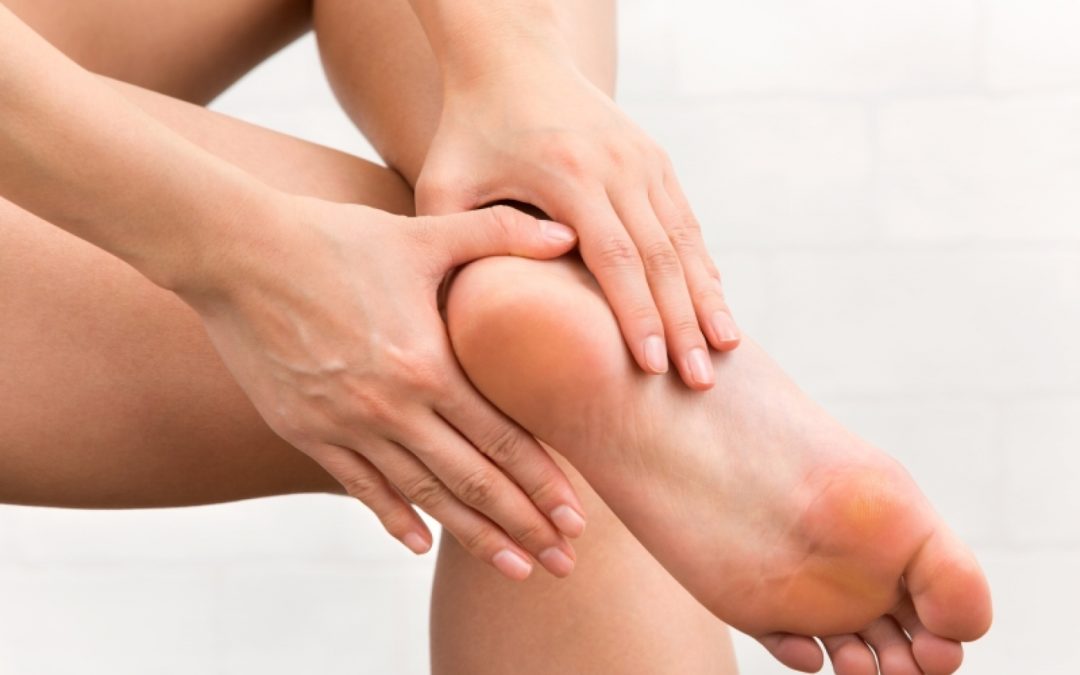If you’ve dealt with dry, cracked heels (heel fissures), you know the discomfort and damage they cause. Instead of soft, smooth skin, cracked heels feel rough, dry, and even painful, resembling sandpaper. Left untreated, they can lead to more serious complications.
Feet naturally lack oils, which makes them more susceptible to dryness, particularly in colder weather. As a result, the skin on your feet needs regular attention to stay healthy. Unfortunately, foot care can easily fall down the list of priorities, especially when life gets busy.
It’s no wonder dry, cracked heels are among the most common issues treated by chiropodists. Patients often seek help once the problem has advanced, but it’s important to address heel fissures early to avoid more severe health complications.
Watch Out for Thick, Discoloured Skin
Watch Out for Thick, Discoloured Skin Cracked heels usually begin with thin lines appearing on your skin, in addition to excessive dryness. Gradually, the skin thickens and discolours, becoming white, yellow or brown, with the edge of the heel being particularly badly affected. You’ll probably feel embarrassed about the appearance of your heels and find yourself avoiding footwear that exposes them.
Without effective treatment, the thin lines easily become cracks, as the pressure exerted on your heels when you stand or move around forces the dry, inflexible skin to split. In severe cases, cracked heels bleed and are agonising to walk on.
When more cracks appear and existing ones deepen, your risk of developing an infection increases, as harmful bacteria have a greater chance of entering your body. In this way, a minor foot complaint can become a serious condition that compromises your health.
Risk Factors for Cracked Heels
Certain factors increase your vulnerability to developing cracked heels, including:
- Dry skin conditions like eczema or psoriasis
- Obesity, which puts more pressure on your heels
- Diabetes, which can lead to nerve damage and poor circulation
- Athlete’s foot, which causes flaky, dry skin
- Nutritional deficiencies, particularly omega-3 fatty acids and zinc
- Prolonged standing on hard surfaces, such as during daily commutes
Moreover, your choice of footwear affects your chances of developing cracked heels, especially in the summer. As the NHS and College of Podiatry emphasise, the condition is ‘often caused by open-backed sandals and flip-flops rubbing around the edge of the heel’.
Treatment for Dry, Cracked Heels
To manage cracked heels at home, follow these tips:
- Moisturise daily, especially after showering
- Use a pumice stone to gently remove dead skin
- Wear closed-back shoes to protect your heels
- Drink plenty of water and eat a nutritious diet
However, if you notice worsening symptoms, it’s essential to consult a chiropodist. Our experienced London chiropodists provide specialist treatment for cracked heels. It’s one of the many chiropody services we offer.
We can determine the cause of your cracked heels, gently remove troublesome hard skin to accelerate the healing process, treat painful cracks and offer expert advice about aftercare.
For effective relief from cracked heels at a convenient London chiropody and podiatry clinic, please call Feet By Pody today on 0207 099 6657 or book an appointment online.
FAQs
- What causes cracked heels?
- Cracked heels are primarily caused by dry skin, pressure, and friction, especially from open-back shoes or prolonged standing on hard surfaces.
- Are cracked heels dangerous?
- If left untreated, cracked heels can become infected, leading to serious complications like cellulitis.
- Can cracked heels be prevented?
- Yes, by moisturising regularly, wearing supportive footwear, and avoiding prolonged standing on hard surfaces.
- Are cracked heels linked to any medical conditions?
- Conditions like diabetes, eczema, and athlete’s foot can make you more prone to developing cracked heels.
- When should I see a chiropodist for cracked heels?
- If your heels are painful, bleeding, or not improving with home care, it’s time to seek professional help.
- Can over-the-counter creams help with cracked heels?
- Yes, over-the-counter moisturisers and heel balms can help, but persistent cases may require professional treatment.
- Why do my cracked heels bleed?
- Bleeding occurs when the cracks deepen and split due to pressure and the lack of flexibility in dry skin.
- Do I need prescription medication for cracked heels?
- In severe cases, a chiropodist might recommend stronger treatments or specialised creams.
- Are there any lifestyle changes that can help prevent cracked heels?
- Staying hydrated, wearing supportive shoes, and maintaining a healthy diet rich in omega-3 and zinc can help.
- How can I prevent cracked heels in winter?
- In colder months, moisturise more frequently, wear socks indoors, and avoid exposing your feet to cold, dry air.
Foot Treatment in London
For effective relief from dry, cracked heels, visit one of our conveniently located London clinics. At Feet By Pody, we provide expert foot care tailored to your needs, ensuring your heels heal properly and stay healthy long-term.
Call 0207 099 6657 to book an appointment or schedule online today!

